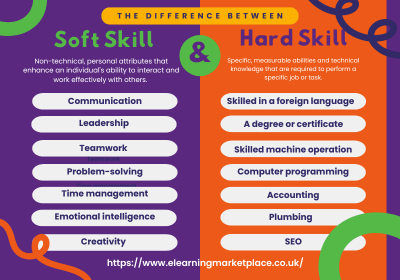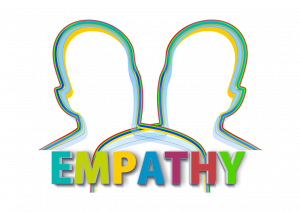
The soft skills training market is showing strong growth, according to the latest report from IMARC, from GBP 15.17 billion (USD 20.3 billion) in 2020, to GBP 25.3 billion (USD 33.39 billion) in 2024, an increase of GBP 9.78 billion (USD 13.09 billion). The research finds that the growth is down to the increasing use of soft skills training in the workplace, but why? Is it job satisfaction, addressing skills gaps, increased profit or maybe all three?
Many international studies on the impact of soft skills in the workplace have found without question that they are skills that employers require across all aspects of business. These studies include Harvard University research that found that only 15% of job success comes from technical skills and 85% comes from soft skills. LinkedIn’s Global Talent Trends report found that 92% of talent acquisition professionals reported that soft skills are equally or more important to hire for than hard skills.
A good example of soft skills impacting the workplace is Deloitte’s Global Human Capital Trends research from over 10 years ago, which surveyed more than 11,000 business leaders, and found that future employees most sought-after talents will be “essentially human” soft skills. It appears that they were right, as Research by CIPD, KPMG and the Edge Foundation in 2023 found that 92% of employees felt soft skills were important for their career. A higher percentage than for sector-specific knowledge, technical skills, and digital and numeracy skills. So when you combine this evidence with findings from the same research; that the UK is losing £22.2 billion annually due to a shortage of opportunities to develop essential soft skills, you can start to build a picture of why the growth in soft skills training is what it is.

Back in 2003 Haskel, Hawkes and Pereira showed that hard skills* and soft skills**, including interpersonal skills and communication, were positively related to total factor productivity (TFP); a measure of productive efficiency in that it measures how much output can be produced from a certain amount of inputs e.g. to do more with less.
* hard skills are specific, measurable abilities and technical knowledge that are required to perform a specific job or task.
** soft skills are non-technical, personal attributes that enhance an individual’s ability to interact and work effectively with others. They encompass interpersonal, communication, and emotional intelligence skills, often building upon character traits and attitudes.
Since 2003 there has been an ever increasing awareness of the value of soft skills and in 2016 a Gallup report ‘Guide to Customer Centricity: Analytics and Advice for B2B Leaders: how to accelerate business growth by listening to and acting on the voice of your customers’ explains how customer relationships, collaboration and problem handling are key to business success. In recent years employers such as Google, McDonald’s and Tescos have highlighted how soft skills improve productivity and are vital to building great teams and delivering great customer service, which all contribute to business profitability. Google analysed their recruitment data and the factors that led to people being the most successful employees and concluded that, rather than technological skills being what was driving the company forward, it was employees with soft skills.

Tigers is a company that has been measuring the impact of soft skill leadership development with a focus on return on investment for nearly 29 years. After many years and multiple studies they have conclusively found that soft skill improvements in leadership team development, conflict resolution, emotional intelligence etc have led to improvements in the business balance sheet. In one large leadership skill development study there were cost savings and efficiencies in many business functions and improved productivity. Tigers recommends that companies provide bite sized soft skill training that is deployed regularly over time, such as weekly 10 minute training bursts, to improve all aspects of business efficiency.
In a workplace trial conducted between higher education and industry a 12 month soft skills training programme was delivered to 1000 employees, across five factories at Shahi Exports, an Indian garment manufacturer. They found that delivering soft skills training to employees in assembly line roles returned approximately 250% return on investment within eight months of the programme’s conclusion. Most of this was down to increased employee productivity, however they also found that they were able to take on more complex tasks more quickly. The employees themselves benefited as well, they responded in the post training evaluation that they had higher self-esteem and higher earnings.

Every job in a company requires interaction with others, whether they are colleagues, customers, or stakeholders. These interactions as well as communication may require problem solving, conflict resolution and decision making all of which if handled poorly can have a major impact on a company’s profitability. For example, if a business has developed the best product in the world they will only profit from that product if their marketing team gets it in front of the target audience. To do this the marketeer requires the appropriate knowledge and skills on marketing techniques, but they also need to communicate appropriately with the audience, listen to the potential customer, deal with difficult situations, make important decisions, are motivated, manage their own time, work as part of a team and are creative. A marketer without these skills will struggle to do their job effectively and is therefore very unlikely to provide a sales team with the leads they require to secure any sales. No sales, no company!
So if soft skills are so important to business why in an estimated global spending on training of GBP 260 billion ($350 billion) to GBP 300 billion ($400 billion) is only around 10% of this spent on soft skill development? And as is revealed, that a soft skills gap is having a negative impact on UK workplaces, why aren’t employers offering this training? Maybe because it is a misconception that soft skills can be picked up in the workplace and that providing training on soft skills is not essential training as they don’t impact the bottom line. In an extensive study conducted by higher education institutions ‘Skill discrepancies between research, education, and jobs reveal the critical need to supply soft skills for the data economy’, it was recommended that the workforce should be given time to train in soft skills as these skills don’t develop sufficiently in the workplace without training.

With the rise in artificial intelligence and technology related job roles the requirement for skills in problem solving, critical thinking, creativity, collaboration and emotional intelligence is only going to grow. This is borne out by the Pew Research which found that there has been an 83% increase in jobs requiring soft skills since 1980 and this requirement is likely to accelerate into the future.
Whether you are a micro, SME or large business, if you would like to join the likes of Google and Tescos and reap the benefits of employees with excellent soft skills to increase efficiencies and productivity in your business, then take a look at the eLearning Marketplace’s large range of soft skills training, all online courses that can be supplied for your own LMS or using your own private company setup on our LMS. Keep ahead of your competition and find out about soft skills training today, contact enquiries@elearningmarketplace.co.uk.
You may also like:
The Impact of e-Learning Growth on Workplace Learning
Drive Success with Employee’s Collective Intelligence
The Power of our Subconscious Mind in the Learning Processes
Author: Carolyn Lewis, Head of Business Development, L&D Consultant
Sources:
https://www.imarcgroup.com/soft-skills-training-market
https://www.pnas.org/content/pnas/115/50/12630.full.pdf
https://www.peoplemanagement.co.uk/article/1815592/uk-losing-22bn-year-not-investing-soft-skills-development-research-finds
https://www.linkedin.com/business/talent/blog/talent-acquisition/soft-skills-are-hard-to-assess-but-these-steps-can-help
https://mitsloan.mit.edu/ideas-made-to-matter/soft-skills-training-brings-substantial-returns-investment
https://www.forbes.com/sites/anantagarwal/2018/10/02/data-reveals-why-the-soft-in-soft-skills-is-a-major-misnomer/
https://www.forbes.com/sites/insights-intelai/2018/11/29/is-your-company-soft-enough/#8c63265552e0
https://www.employment-studies.co.uk/system/files/resources/files/rw39.pdf
https://news.gallup.com/reports/187877/b2b-report-2016.aspx?utm_source=gbj&utm_medium=copy&utm_campaign=20160518
https://insights.learnlight.com/en/articles/seven-ways-soft-skills-training-makes-your-organization-more-profitable/
https://www.corevalues.com/ceo/soft-skills-ceos-need-today/
https://www.pdx-consulting.com/are-soft-skills-the-elephant-in-the-room-blog.htm







 UK: 0844 854 9218 | International: +44 (0)1488 580017
UK: 0844 854 9218 | International: +44 (0)1488 580017








